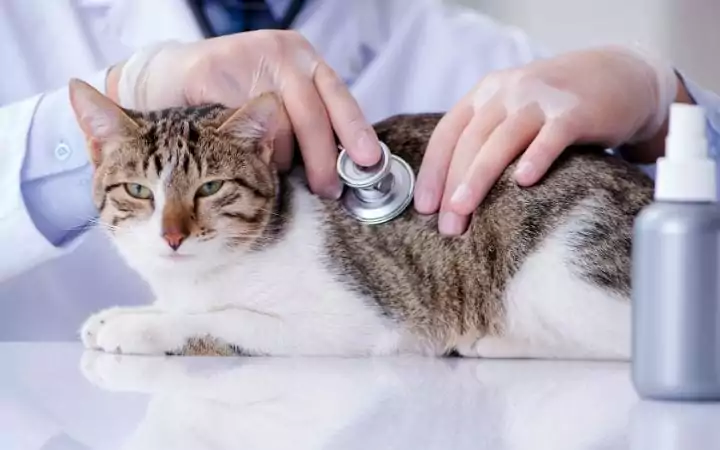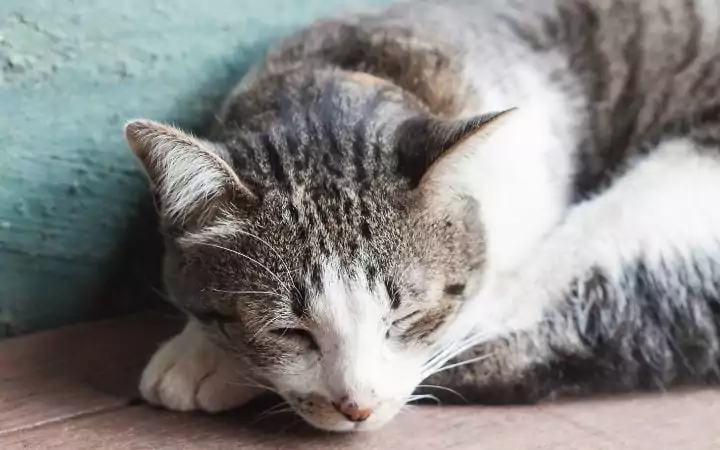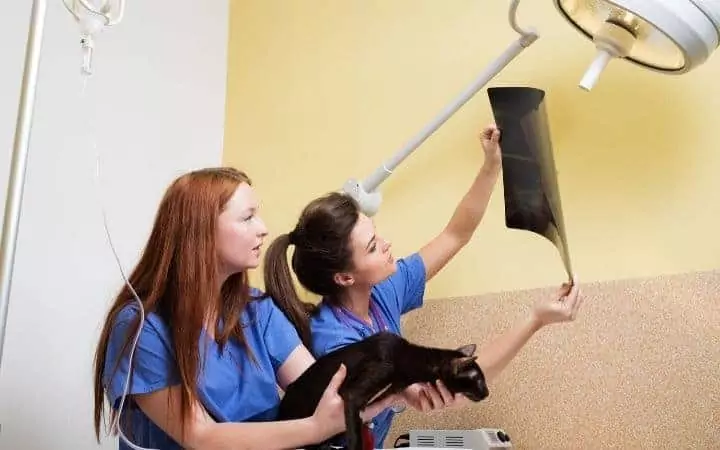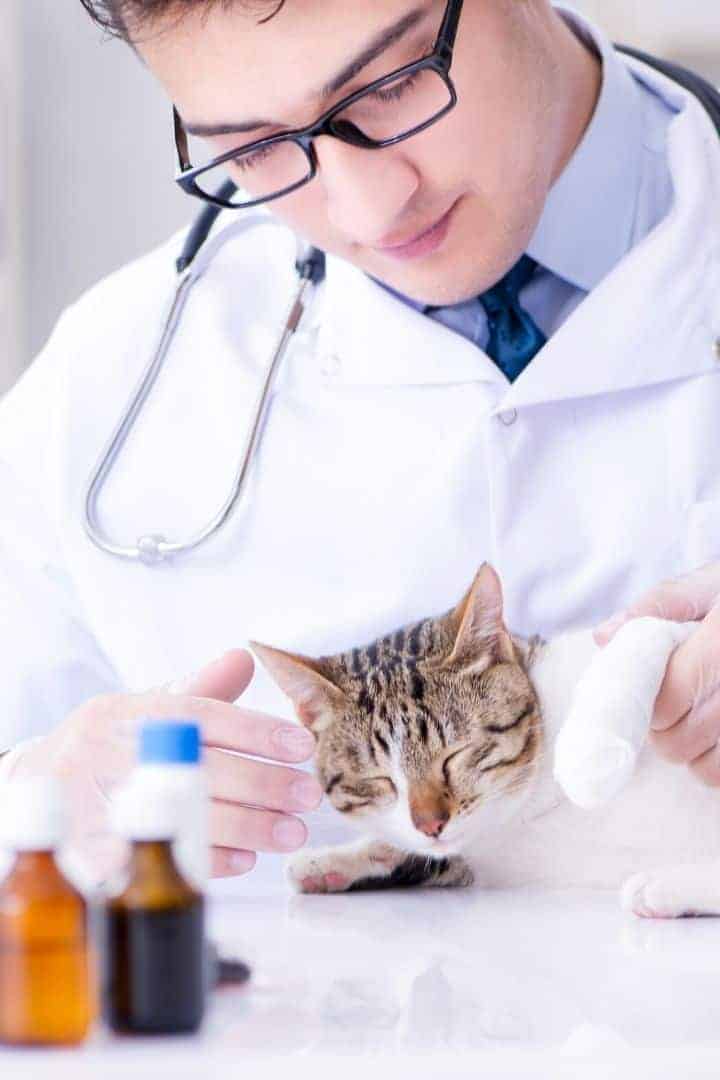Many people confuse the sound of a kitty coughing with a cat regurgitating a hairball because they adopt the same position: crouched posture with an extended neck. When the result is not a hairball, your cat is coughing.
If your feline friend has frequently been coughing for a few days, one of the potential causes could be cat asthma.
Feline asthma is the most common cause of persistent coughing in cats. In this article, we are going to explain and give an overview of this condition. This blog post is for pet owners and everyone involved in the veterinary field who want to learn more or have a quick guide about cat asthma.
What is Cat Asthma?
The definition of cat asthma is similar to human asthma. It is the swelling of the lower airways (trachea, bronchi, bronchioles, and alveoli) caused by an irritant or allergic reaction. Feline asthma might also cause excessive mucus secretions, which leads to heavy breathing in cats. The airways may always be inflamed even when the cat is not displaying any symptoms of the condition.
The severity of the clinical signs may vary: they can be mild, acute, or chronic. Cat asthma is also known as “allergic bronchitis.”
What are the causes of Cat Asthma?
Adult cats are more prone to feline asthma, especially cats, between two to six years. Different triggers can induce inflammation of the airways:
- Cigarette smoke
- House dust
- Cat litter dust
- Airborne pollens
- Air fresheners
- Home cleaners
- Perfumes
- Stress
- Obesity
- Respiratory diseases
- Heartworm
What Are the General Symptoms of Asthma in Cats?
The clinical signs may vary depending on the severity of the case. Some cats may have a mild cough while others may experience critical asthmatic attacks (dry, non-productive persistent coughs along with difficult breathing and wheezing).
Some cat asthma symptoms are:
- Constant coughing
- Wheezing
- Coughing up foamy mucus
- Open mouth breathing (chronic)
- Labored breath (chronic)
- Abnormal gum color (chronic)
- Lethargy
Diagnosing Feline Asthma
When it comes to diagnosing cat asthma is important to take into account the clinical signs and medical history. Discarding other causes of respiratory diseases is also essential. Some tools to diagnose asthma in cats include:
- Chest x-rays, to reveal any unusual findings in the lungs.
- Examination of the chest with a stethoscope, listening to wheezes, and lung crackles.
- Blood tests to check for any other illnesses that may be causing asthma.
- Bronchoscopy, passing a thin tube (bronchoscope) through the airways to look for any abnormalities. It could be a complicated procedure in cats due to their small airways and anesthesia in cats with respiratory problems.
How to treat cat asthma?
Feline asthma has no cure, and it is a progressive condition. Your feline companion may be in a long term medication. With appropriate management, cats can have a good quality of life. Management procedures go as follow:
- Anti-inflammatory steroids to control swelling of the lining of the airways
- Medication such as bronchodilators to open the airways
These steroids and drugs can be given orally or through inhalation with a face-mask connected to a spacer device. The inhaled treatments hold benefits, in particular:
- It can eventually decrease the dose of long- term medications
- It targets the correct position in the airways
- Your feline friend may tolerate the inhalator more than oral treatment, but it is essential to introduce the device first. As cat parents, we know how difficult it is to give a cat medication!
How to Prevent Feline Asthma Attacks?
Preventive care is essential to keep your cat healthy and check for potential conditions; here are some tips:
- Visit your vet every six months for routine examinations to catch any signs of diseases.
- Eliminate exposure to irritant agents such as smoking, air fresheners, and perfumes.
- Clean the house to reduce dust built-up and make sure to read the labels for each chemical you are using.
- Use high-quality dust-free cat litters. Remember that cats do not like changes in their routine, so ensure to introduce the cat litter gradually.
- Control your cat’s weight. Nutrition is vital to prevent illnesses.
- Maintain a stress-free environment for your kitty by providing enough hiding spaces, a comfortable and warm atmosphere, toys.
Summary
The prognosis of an asthmatic cat depends on different factors: severity, management, preventing care, age, other diseases. Still, it is essential to do our bests and keep ourselves informed so our feline friends can live joyfully for years. If you see any of the clinical signs explained in the article, take your cat to the vet immediately.
If you found this information useful, read this article on Lymphoma in cats!






